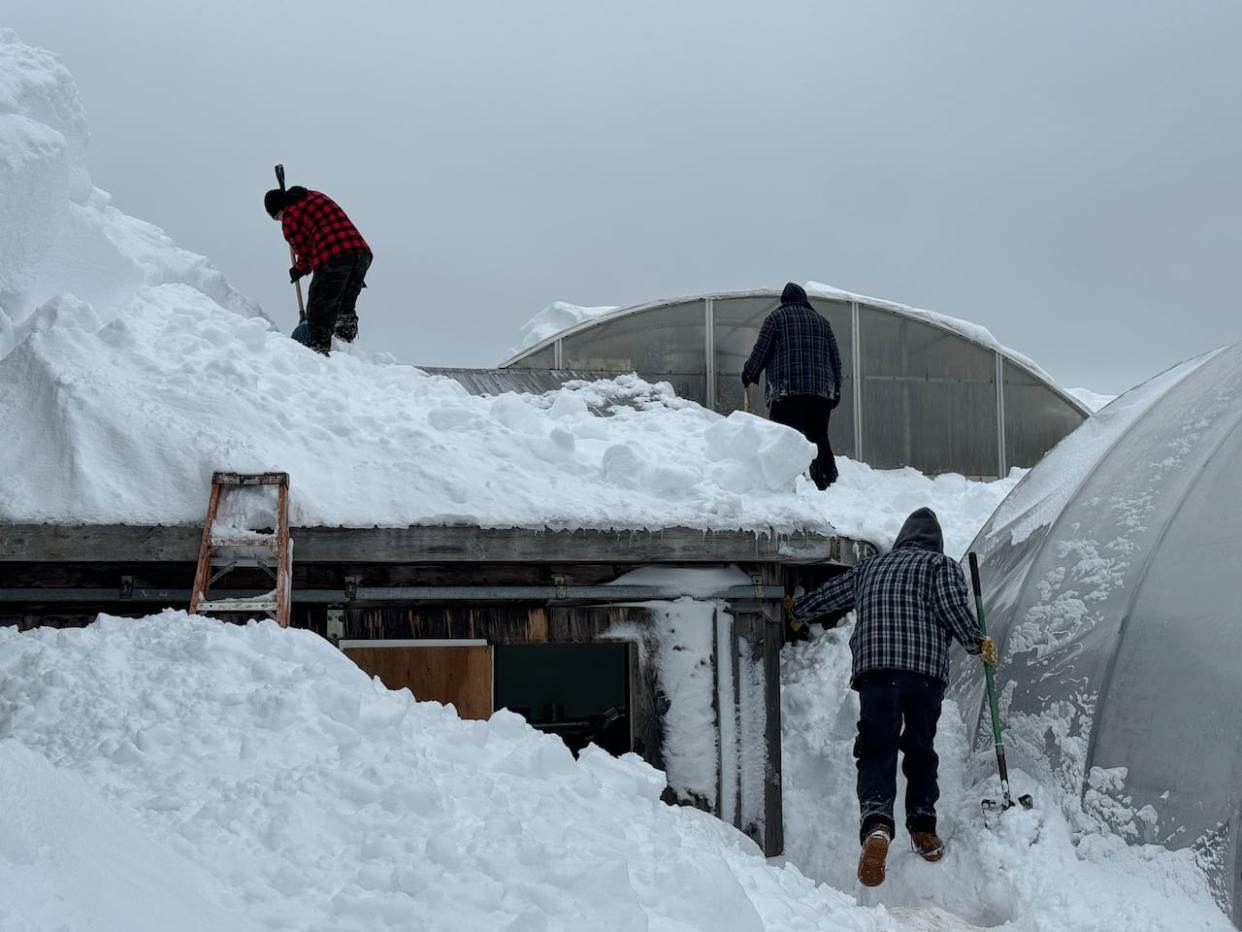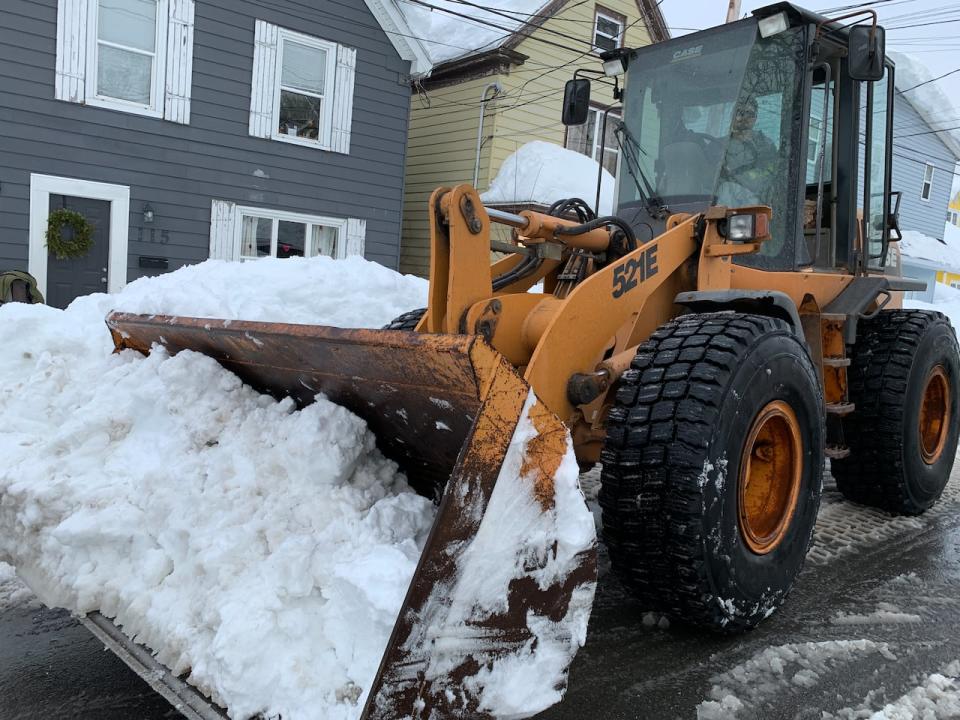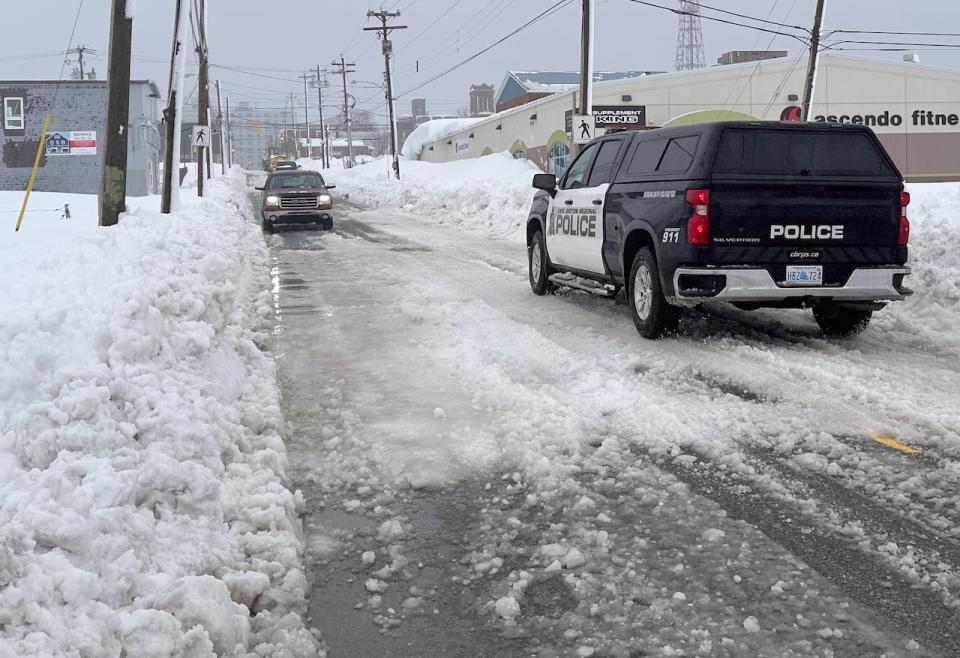Some residents in northeastern N.S. remain snowed-in after multi-day storm

Some Nova Scotians remain stranded in their homes as northeastern parts of the province and Cape Breton continue to slowly dig themselves out of a historic multi-day snow storm.
Sandra Matheson, who lives in Black Point, in the northern part of Pictou County, said she's been snowed-in at her home since Friday, and it's "unsettling" to know she can't leave and no one can easily get to her.
"The drifts on the front of the house which face the water were to the roof," she told CBC's Information Morning Halifax. "The last few days, I've been trying to, at least, shovel a path around the perimeter of the property so the snow was not directly on the windows."
A particular concern, she said, is the lack of communication about snow clearing in the county. She said she has reached out to her MLA — which happens to be Premier Tim Houston — and the provincial Transportation and Public Works departments, but has not received any information back.

A wheel loader clears snow away in Sydney, N.S., on Feb. 6, 2024. (Shaina Luck/CBC)
Pictou County Warden Robert Parker said Wednesday that rural roads are under provincial jurisdiction. He praised provincial snow-clearing crews, but said the county is continuing to call on the Nova Scotia government for more help.
"Those people are out there working as hard as they can every day and they're getting tired. We're on Day 6. But the people in the homes that are trapped are also getting very exasperated," he said.
Those living in remote areas may have to wait longer to have their roads plowed, and Parker warned it would be "almost impossible" for emergency crews to get to some of the homes if they are called.
"I know out there there's an awful lot of people on these back roads, especially, that are suffering," he said.
Movement made on Cape Breton cleanup
On Cape Breton, which had some of the highest amounts of snow fall, clearing continues. Major highways are now passable, according Public Works, although ice and narrow lanes are still an issue, and parts of Highway 125 and the Cabot Trail are down to one lane.
In Cape Breton Regional Municipality, most roads in provincial jurisdiction will be open by the end of Wednesday, and the regional public works department said local roads should also be passable by then.
Isolated or gravel roads might not be cleared until Friday, however.
Guy Deveau, executive director of maintenance and operations with the provincial Public Works, urged residents to stay off the roads to make it easier for snow clearing crews to work.

Cape Breton regional police say the declaration of a local state of emergency gives them the power to tow vehicles or stop drivers that are blocking snow clearing efforts. (Tom Ayers/CBC)
Snow clearing crews are catching up on local roads across Richmond, Victoria and Inverness counties, he said. Around 40 plows were working across Cape Breton Island on Tuesday, he added, with around 90 more in the northern and eastern regions, and gear coming in from across the province, as well as P.E.I., New Brunswick and Parks Canada.
In CBRM, there's been a lot of progress over the last day, said John Phalen, the municipality's manager of public works, but there are still several roads unattended and the region remains in "emergency mode."
"Getting everything open and moving is step one, and I think we're going to be very close to having that today. Then we have to start the process of doing the widening and all that, and that's going to be really slow."
Schools across both the Strait and Cape Breton-Victoria regional centres of education remain closed Wednesday, as does the Cape Breton University campus.
There will be no curbside collection across the CBRM on Wednesday and Transit Cape Breton will not be operating.
Biggest snowfall in 20 years
CBC meteorologist Ryan Snoddon said with so much blowing and drifting, it has been difficult to get specific measurements of snowfall during the storm, but unofficial estimates show Sydney was likely the hardest hit, with between 90 and 150 centimetres recorded between Friday and Monday.
"Overall, this was no doubt the most historic winter storm to hit Nova Scotia since White Juan, and near the top of the all-time list," Snoddon said.
Sixty to 90 centimetres fell over Victoria and Guysborough counties. Up to 60 centimetres were recorded around the Halifax metro area.
MORE TOP STORIES


